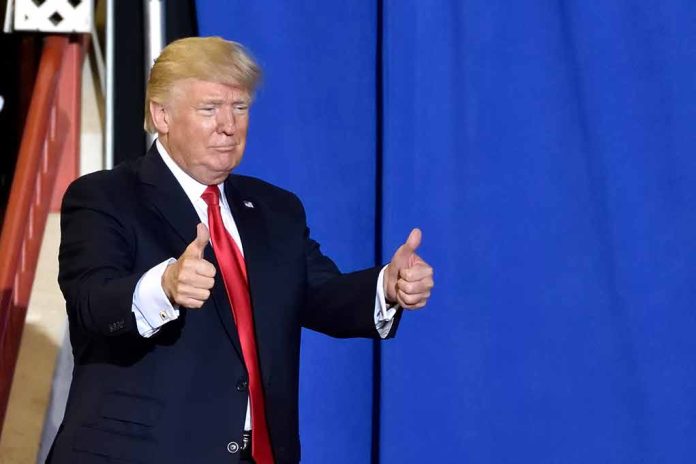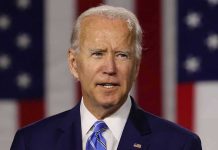
President Donald Trump plans to posthumously pardon baseball legend Pete Rose, potentially altering the controversial legacy of MLB’s all-time hits leader who was banned from the sport for gambling.
Key Takeaways
- President Trump announced plans to sign a “complete pardon” for Pete Rose in the coming weeks, despite Rose’s death in 2023 at age 83.
- Rose was banned from baseball for life in 1989 for gambling on games, which also prevented his induction into the Hall of Fame.
- Trump emphasized that Rose only bet on his team to win and highlighted his unmatched career statistics, including the most hits in MLB history.
- The practical impact of a posthumous presidential pardon on Rose’s MLB ban and Hall of Fame eligibility remains unclear.
- Rose admitted to betting on games in 2004 after years of denial but maintained he never bet against his own team.
Trump’s Announcement and Reasoning
President Donald Trump revealed his intention to pardon baseball legend Pete Rose through a post on his Truth Social platform. This unexpected announcement comes months after Rose’s death and decades after the baseball star was banned from the sport for gambling. Trump’s declaration reflects his view that Rose has been unfairly treated by Major League Baseball despite his extraordinary achievements on the field. The president specifically noted that while Rose shouldn’t have been gambling on baseball, he only bet on his team to win, which Trump appears to consider a mitigating factor in Rose’s case.
“Over the next few weeks I will be signing a complete pardon of Pete Rose, who shouldn’t have been gambling on baseball, but only bet on his team winning.” – President Donald Trump
The pardon announcement has sparked renewed debate about Rose’s legacy and the severity of MLB’s lifetime ban. While Trump did not provide specific details about the pardon’s intended effect, his statement strongly criticized baseball authorities for keeping Rose out of the Hall of Fame. Rose’s gambling activities resulted in his permanent exclusion from baseball in 1989, a punishment that has remained controversial among baseball fans and sports commentators who acknowledge his outstanding career statistics.
Rose plead guilty to two counts of filing false tax returns and was banned from MLB from a sports betting scandal. https://t.co/I9pLEhoDxC
— NBC Los Angeles (@NBCLA) March 2, 2025
Rose’s Baseball Legacy and Controversy
Pete Rose’s baseball career stands as one of the most accomplished in the sport’s history. His professional journey spanned from 1963 to 1986, primarily with the Cincinnati Reds, where he earned the nickname “Charlie Hustle” for his intense playing style. Rose still holds MLB records for hits (4,256), games played (3,562), at-bats (14,053), and singles (3,215). He was a 17-time All-Star, won three World Series championships, and captured the National League MVP award in 1973. These achievements would typically guarantee a place in Cooperstown.
However, Rose’s gambling activities dramatically altered his legacy. After years of denials, he finally admitted in 2004 to betting on baseball games, including contests involving his own team, though he maintained he never bet against his team. This admission came long after his 1989 agreement to a lifetime ban from baseball. Beyond the gambling controversy, Rose also faced legal troubles, having pleaded guilty to two charges of filing false income tax returns in 1990, for which he served five months in federal prison.
“He never betted against himself, or the other team. He had the most hits, by far, in baseball history, and won more games than anyone in sports history.” – President Donald Trump
**Sports News for March 02, 2025, Afternoon Update**
– The Washington Commanders have acquired wide receiver Deebo Samuel from the San Francisco 49ers in a trade that raises questions about the impact on both teams' rosters and future prospects.
– Steph Curry, after delivering…
— News v2 (@newsv2_website) March 2, 2025
Implications of a Posthumous Pardon
The unprecedented nature of Trump’s proposed posthumous pardon for a baseball-related punishment raises significant questions about its practical effects. Presidential pardons typically apply to federal crimes, but Rose’s ban from baseball was imposed by MLB Commissioner A. Bartlett Giamatti, not by federal authorities. While Rose did plead guilty to federal tax evasion charges in 1990, his baseball ban stems from a separate agreement with MLB. This creates uncertainty regarding whether a presidential pardon would have any binding effect on Rose’s Hall of Fame eligibility.
Sources:
- Trump Says He Will Pardon Baseball Great Pete Rose | The Epoch Times
- Trump Says He Will Pardon Baseball Great Pete Rose | The Epoch Times














